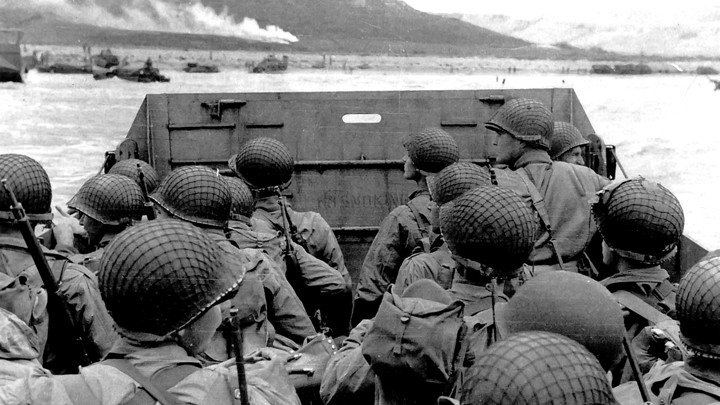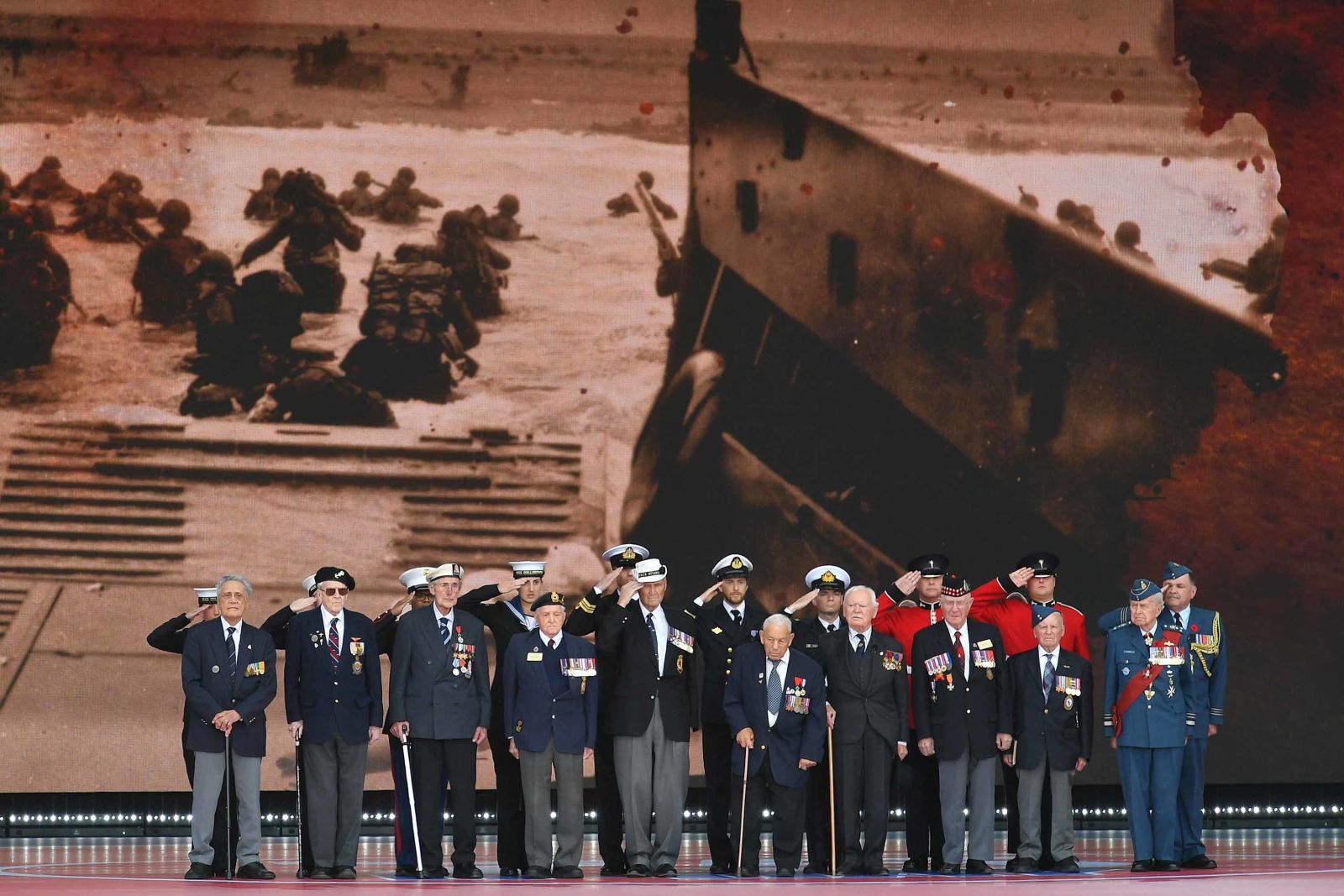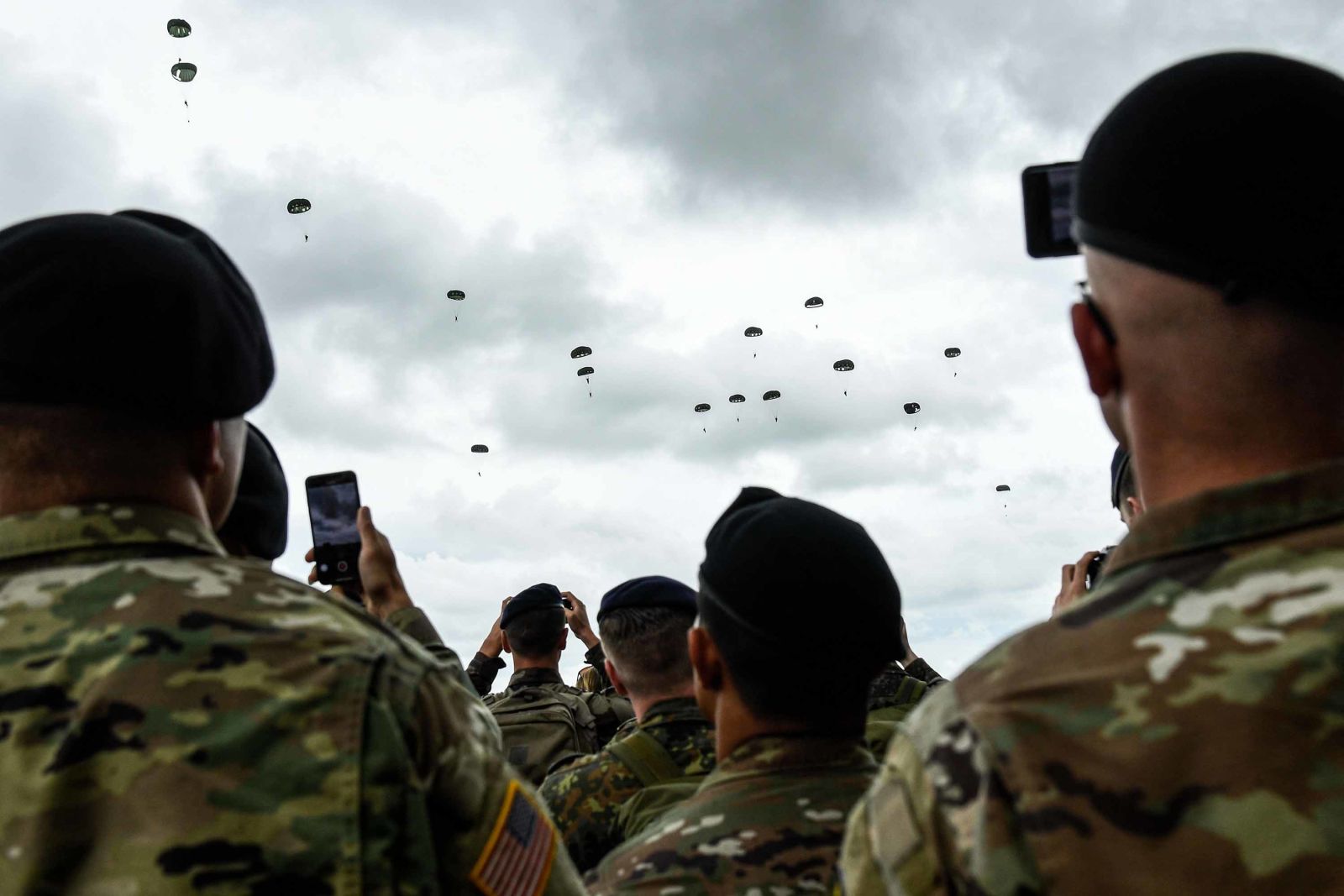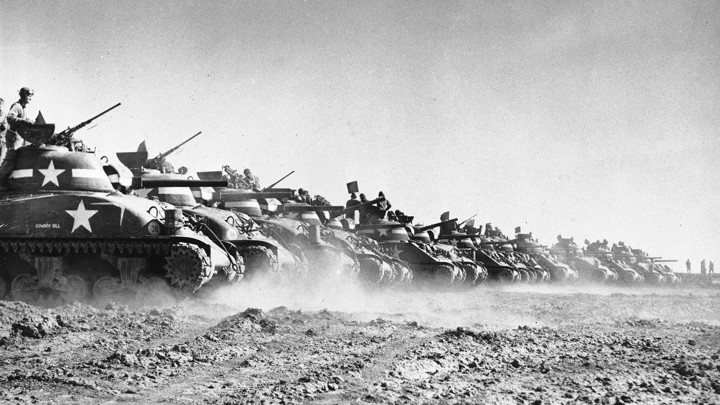annabenedetti
like marbles on glass
First Wave at Omaha Beach
An account of the “epic human tragedy” that unfolded when Allied troops landed on the shores of Normandy on D-Day
S. L. A. MARSHALL NOVEMBER 1960 ISSUE

Photograph of American troops approaching Omaha Beach, Normandy, on D-Day.UNIVERSAL HISTORY ARCHIVE/UIG VIA GETTY
Read the rest at the link.
An account of the “epic human tragedy” that unfolded when Allied troops landed on the shores of Normandy on D-Day
S. L. A. MARSHALL NOVEMBER 1960 ISSUE

Photograph of American troops approaching Omaha Beach, Normandy, on D-Day.UNIVERSAL HISTORY ARCHIVE/UIG VIA GETTY
Unlike what happens to other great battles, the passing of the years and the retelling of the story have softened the horror of Omaha Beach on D Day.
This fluke of history is doubly ironic since no other decisive battle has ever been so thoroughly reported for the official record. While the troops were still fighting in Normandy, what had happened to each unit in the landing had become known through the eyewitness testimony of all survivors. It was this research by the field historians which first determined where each company had hit the beach and by what route it had moved inland. Owing to the fact that every unit save one had been mislanded, it took this work to show the troops where they had fought.
How they fought and what they suffered were also determined in detail during the field research. As published today, the map data showing where the troops came ashore check exactly with the work done in the field; but the accompanying narrative describing their ordeal is a sanitized version of the original field notes.
This happened because the Army historians who wrote the first official book about Omaha Beach, basing it on the field notes, did a calculated job of sifting and weighting the material. So saying does not imply that their judgment was wrong. Normandy was an American victory; it was their duty to trace the twists and turns of fortune by which success was won. But to follow that rule slights the story of Omaha as an epic human tragedy which in the early hours bordered on total disaster. On this two-division front landing, only six rifle companies were relatively effective as units. They did better than others mainly because they had the luck to touch down on a less deadly section of the beach. Three times that number were shattered or foundered before they could start to fight. Several contributed not a man or bullet to the battle for the high ground. But their ordeal has gone unmarked because its detail was largely ignored by history in the first place. The worst-fated companies were overlooked, the more wretched personal experiences were toned down, and disproportionate attention was paid to the little element of courageous success in a situation which was largely characterized by tragic failure.
The official accounts which came later took their cue from this secondary source instead of searching the original documents. Even such an otherwise splendid and popular book on the great adventure as Cornelius Ryan's The Longest Day misses the essence of the Omaha story.
In everything that has been written about Omaha until now, there is less blood and iron than in the original field notes covering any battalion landing in the first wave. Doubt it? Then let's follow along with Able and Baker companies, 116th Infantry, 29th Division. Their story is lifted from my fading Normandy notebook, which covers the landing of every Omaha company.
This fluke of history is doubly ironic since no other decisive battle has ever been so thoroughly reported for the official record. While the troops were still fighting in Normandy, what had happened to each unit in the landing had become known through the eyewitness testimony of all survivors. It was this research by the field historians which first determined where each company had hit the beach and by what route it had moved inland. Owing to the fact that every unit save one had been mislanded, it took this work to show the troops where they had fought.
How they fought and what they suffered were also determined in detail during the field research. As published today, the map data showing where the troops came ashore check exactly with the work done in the field; but the accompanying narrative describing their ordeal is a sanitized version of the original field notes.
This happened because the Army historians who wrote the first official book about Omaha Beach, basing it on the field notes, did a calculated job of sifting and weighting the material. So saying does not imply that their judgment was wrong. Normandy was an American victory; it was their duty to trace the twists and turns of fortune by which success was won. But to follow that rule slights the story of Omaha as an epic human tragedy which in the early hours bordered on total disaster. On this two-division front landing, only six rifle companies were relatively effective as units. They did better than others mainly because they had the luck to touch down on a less deadly section of the beach. Three times that number were shattered or foundered before they could start to fight. Several contributed not a man or bullet to the battle for the high ground. But their ordeal has gone unmarked because its detail was largely ignored by history in the first place. The worst-fated companies were overlooked, the more wretched personal experiences were toned down, and disproportionate attention was paid to the little element of courageous success in a situation which was largely characterized by tragic failure.
The official accounts which came later took their cue from this secondary source instead of searching the original documents. Even such an otherwise splendid and popular book on the great adventure as Cornelius Ryan's The Longest Day misses the essence of the Omaha story.
In everything that has been written about Omaha until now, there is less blood and iron than in the original field notes covering any battalion landing in the first wave. Doubt it? Then let's follow along with Able and Baker companies, 116th Infantry, 29th Division. Their story is lifted from my fading Normandy notebook, which covers the landing of every Omaha company.
Read the rest at the link.




